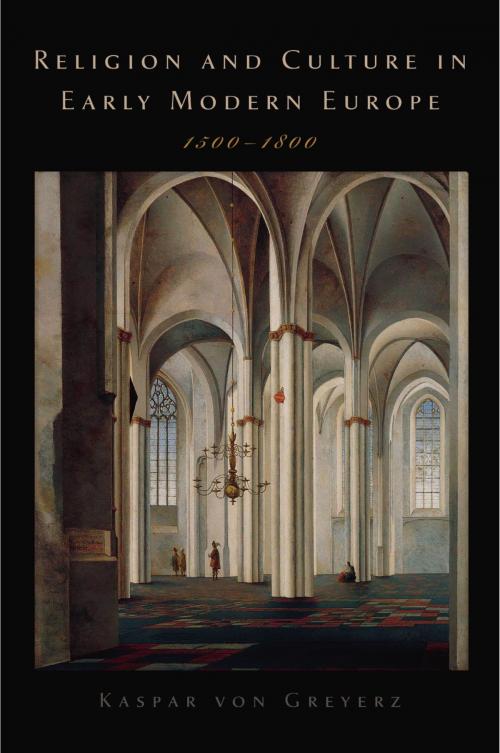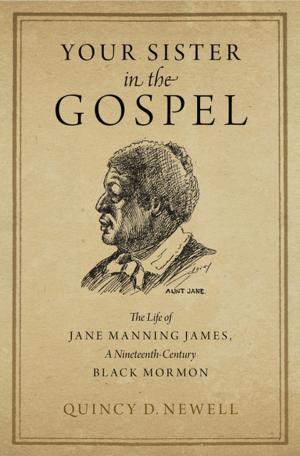Religion and Culture in Early Modern Europe, 1500-1800
Nonfiction, Religion & Spirituality, Reference, History, European General, Modern| Author: | Kasper von Greyerz | ISBN: | 9780190296254 |
| Publisher: | Oxford University Press | Publication: | November 26, 2007 |
| Imprint: | Oxford University Press | Language: | English |
| Author: | Kasper von Greyerz |
| ISBN: | 9780190296254 |
| Publisher: | Oxford University Press |
| Publication: | November 26, 2007 |
| Imprint: | Oxford University Press |
| Language: | English |
In the pre-industrial societies of early modern Europe, religion was a vessel of fundamental importance in making sense of personal and collective social, cultural and spiritual exercises. Developments from this era had immediate impact on these societies, much of which resonates to the present day. Published in German seven years ago, Kaspar von Greyerz important overview and interpretation of the religions and cultures of Early Modern Europe now appears in the English language for the first time. He approaches his subject matter with the concerns of a social anthropologist, rejecting the conventional dichotomy between popular and elite religion to focus instead on religion in its everyday cultural contexts. Concentrating primarily on Central and Western Europe, von Greyerz analyzes the dynamic strengths of early modern religion in three parts. First, he identifies the changes in religious life resulting from the Protestant Reformation and Catholic Counter-Reformation. He then reveals how the dynamic religious climate triggered various radical and separatist movements, such as the Anabaptists, puritans, and Quakers, and how the newfound emphasis on collective religious identity contributed to the marginalization of non-Christians and outsiders. Last, von Greyerz investigates the broad and still much divided field of research on secularization during the period covered. While many large-scale historical approaches to early modern religion have concentrated on institutional aspects, this important study consciously neglects these elements to provide new and fascinating insights. The resulting work delves into the many distinguishing marks of the period: religious reform and renewal, the hotly debated issue of "confessionalism", social inclusion and exclusion, and the increasing fragmentation of early modern religiosity in the context of the Enlightenment. In a final chapter, von Greyerz addresses the question as to whether early modern religion carried in itself the seeds of its own relativization.
In the pre-industrial societies of early modern Europe, religion was a vessel of fundamental importance in making sense of personal and collective social, cultural and spiritual exercises. Developments from this era had immediate impact on these societies, much of which resonates to the present day. Published in German seven years ago, Kaspar von Greyerz important overview and interpretation of the religions and cultures of Early Modern Europe now appears in the English language for the first time. He approaches his subject matter with the concerns of a social anthropologist, rejecting the conventional dichotomy between popular and elite religion to focus instead on religion in its everyday cultural contexts. Concentrating primarily on Central and Western Europe, von Greyerz analyzes the dynamic strengths of early modern religion in three parts. First, he identifies the changes in religious life resulting from the Protestant Reformation and Catholic Counter-Reformation. He then reveals how the dynamic religious climate triggered various radical and separatist movements, such as the Anabaptists, puritans, and Quakers, and how the newfound emphasis on collective religious identity contributed to the marginalization of non-Christians and outsiders. Last, von Greyerz investigates the broad and still much divided field of research on secularization during the period covered. While many large-scale historical approaches to early modern religion have concentrated on institutional aspects, this important study consciously neglects these elements to provide new and fascinating insights. The resulting work delves into the many distinguishing marks of the period: religious reform and renewal, the hotly debated issue of "confessionalism", social inclusion and exclusion, and the increasing fragmentation of early modern religiosity in the context of the Enlightenment. In a final chapter, von Greyerz addresses the question as to whether early modern religion carried in itself the seeds of its own relativization.















